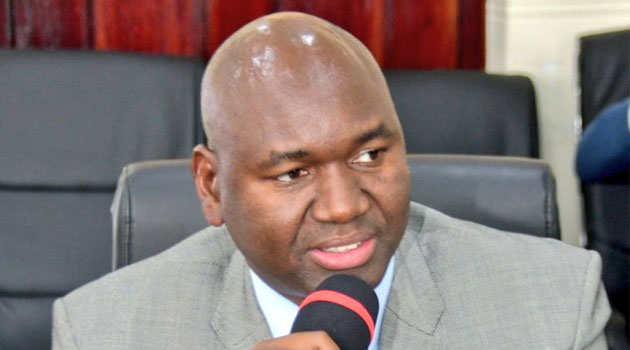
MPs Criticize Legal Void in e-Citizen School Fee System Implementation » Capital News
NAIROBI, Kenya Apr 16 – Members of Parliament have voiced concerns over loopholes and the absence of a legal framework in the implementation of e-Citizen for school fees payments.
The National Assembly Education Committee scrutinized the legal foundation and inclusivity of the program, raising questions about the lack of prior public participation before the implementation of the presidential directive to have all government payments on the platform.
During the committee session Tuesday, Immigration and Citizen Affairs Principal Secretary Julius Bitok faced intense questioning about the failure to conduct public participation as mandated by the Constitution before launching the payment platform.
“There was a sense of urgency in the process following the presidential directive. We had to expedite the implementation,” he explained.
The High Court in Nairobi recently halted, temporarily, a government directive requiring parents to pay school fees through the eCitizen platform.
Lugari MP Nabii Nabwera criticized the Immigration Principal Secretary, questioning the legal advice within the State Department of Immigration that led to disregarding constitutional provisions.
“Are you suggesting that a presidential directive can supersede the Constitution? That’s inaccurate; nothing can override the constitution. It’s the constitution first and then presidential directives,” he posed.
Marakwet West MP Timothy Toroitich faulted the State Department of Immigration for implementing the presidential directive without adhering to the rule of law.
“There’s a lack of framework to guide the utilization and disbursement of funds. Are you acknowledging the failure in implementing the presidential directive without due procedure?” Toroitich questioned.
PS Bitok defended the e-Citizen fee payment platform, stating that it provided by Safaricom would help eliminate unauthorized levies and corruption in school management.
“We acknowledge that many schools impose unauthorized levies on parents and students. This system will enable parents to pay the mandated fees,” Bitok stated.
However, lawmakers expressed scepticism, arguing that the absence of a proper legal framework and regulations on the platform’s usage would not effectively address unauthorized levy charges on parents.
“How will the system prevent school administrators from adding ghost students to the e-Citizen system, similar to what’s happening with Nemis, a government platform?” questioned Kitutu Masaba Clyve Gesairo.
MPs also raised concerns about the system’s ability to accommodate parents who pay fees in kind due to a lack of cash flow, as it operates primarily as a technological receipt system.
“How does the system handle fee payments made in kind, such as maize and goats? How convenient is it for parents who use such forms of payment?” questioned Narok Woman Rep Rebecca Tonkei.
MP Gesairo added, “We’re implementing e-Citizen to minimize human manipulation of the system. How does it address scenarios where parents offer maize and firewood as fees?”
Despite the queries raised, the Immigration Principal Secretary struggled to provide satisfactory answers, indicating potential vulnerabilities to manipulation within the system.
“Sometimes, it’s better to concede rather than defend. What if maize valued at 10,000 shillings is recorded as 20,000 shillings, deceiving the parent? By defending this, you’re failing,” remarked session Chair Malulu Injendi.
PS Bitok reassured that fees paid through the e-Citizen platform would not incur additional charges, unlike typical transactions using the platform.
The system has been implemented for free in 1,300 private schools, while 58 out of 1,077 public universities and only five out of 240 TVETs have adopted it in government learning institutions.
Lugari MP raised concerns about the timely remittance of fees to schools without diversion by the National Treasury, citing past incidents.
“If the Treasury delays remittance, they should be held accountable. How can we trust this system when they haven’t even remitted our bursaries?” he questioned.
PS Bitok emphasized that the e-Citizen school fee payment platform operates on an automatic system, ensuring direct disbursement to schools without intervention by the National Treasury.
“We have a system called t+1, where funds sent to the Treasury are immediately directed to e-Citizen and then to schools. This system is automatic and prevents diversion before reaching the intended recipients,” he clarified.
